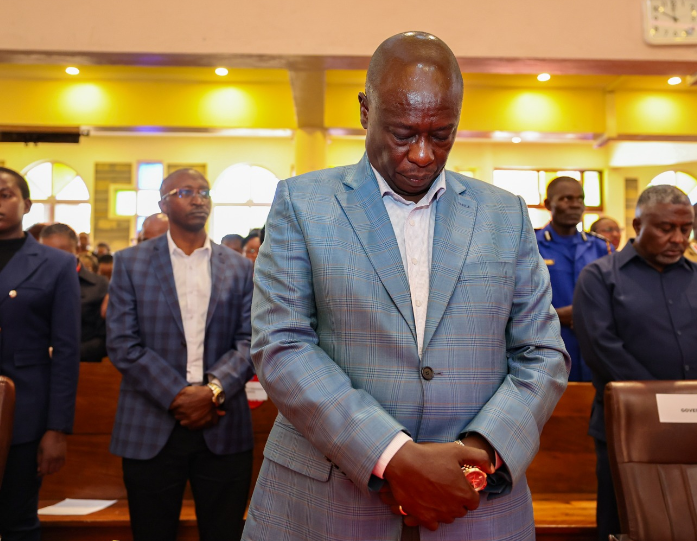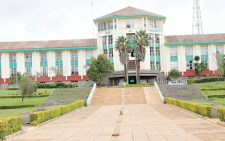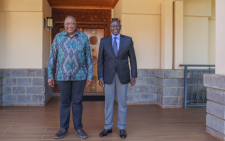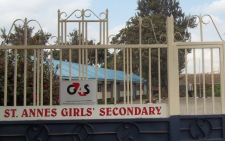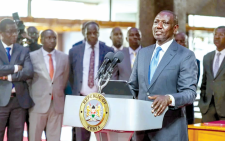MPs approve Sh10 billion for fuel price stabilisation

Parliament yesterday approved the appropriation of Sh10 billion for the stabilisation of fuel prices in the wake of serious shortages experienced in parts of the country.
Moving the Supplementary Appropriation Bill, Budget and Appropriation Committee chairman Kanini Kega said the shortage has been unprecedented and asked members to approve the allocation without delay.
“The crisis that we see in the world has not spared Kenya. Fuel prices in Kenya are a bit lower than in Uganda due to the fuel subsidy. In Uganda, a litre goes for Sh160 while in Kenya at Sh134,” Kega said.
The Treasury will pay oil marketers billions of shillings over the next two months to keep pump prices stable despite a jump in the cost of shipping the commodity.
By passing the Supplementary Appropriation bill, parliament authorised the issue of Sh127.2 billion out of the Consolidated Fund and their application towards the service of the year ending June 30 and to appropriate the money for certain public services and purposes.
MPs also have something to smile about after Sh4.9 billion was allocated for the National Government Constituency Development Fund (NGCDF).
He said the money will assist in the completion of stalled projects in constituencies as the current term comes to an end.
To cushion Kenyans against the biting drought, Sh15 billion has been appropriated to purchase food and purchase of livestock from the affected people.
Kega said in its intentions to contain the Covid-19 pandemic, 50 new Level 3 hospitals will be constructed in all the 47 counties.
“The initiative has been a success in Nairobi County where over 20 Level 4 hospitals have been put up. This has helped to ease pressure on the Kenyatta National Hospital, we want the same to happen in other counties,” Kega said.
Money has also been appropriated to address the issue of pending bills which have been outstanding for many years.
As at September 2020, pending bills stood at Sh28.3 billion most of it going to infrastructure and supplies.
However, Kiharu MP Ndindi Nyoro dismissed the move to allocate money to settle pending bills which he said has been a promise for many years under the Jubilee administration but has not been fulfilled.
“The issue of pending bills has been a song here in Parliament, President Uhuru Kenyatta himself has been on record directing that the bills be settled but nothing has been done. We need to be truthful to our people, businesses have gone down as the government holds their dues,” Nyoro said.
The youthful MP also protested the huge amount of money allocated to security and defence dockets even as Kenyans beg for money set aside for the purchase of fertilizer.
The National Treasury is the biggest beneficiary with an allocation of Sh20.7 billion followed by the Defence ministry (Sh14.2 billion) and the Energy ministry with Sh9.2 billion for power transmission and distribution.
The Independent Electoral and Boundaries Commission (IEBC) will receive an additional Sh8.7 billion for management and preparation of the August 9 General Election.
The Ministry of Petroleum and Mining has been allocated Sh6.7 billion for exploration and distribution of oil and gas.
The Teachers Service Commission (TSC) has been allocated Sh6.96 billion for teacher resource management, State Department for Planning (Sh5.2 billion) and the National Intelligence Service (Sh3.5 billion).
The Bill allocates Sh6.3 billion to the ministry of Agriculture, Sh4.9 billion to the National Constituencies Development Fund (NG-CDF) and Sh3.6 billion to the Health ministry.
Leader of Majority Amos Kimunya asked MPs to shorten the period for passage of the Bill arguing resources are needed to finance unforeseen emergencies.
“I appeal to you to reduce from the period from seven to one day. We need to go through the first, second and third reading of this Bill.
“We need to unlock resources required to mitigate effects of drought among other pressing needs,” Kimunya said.
MPs had earlier reduced the publication period of the Supplementary Appropriations Bill, 2022 from seven to one day to allow MPs to approve it.
Kega said the reduction of the statutory timelines for introduction of the Bill was necessitated by the need to unlock resources for fuel stabilisation, drought mitigation and Constituency Development Fund (NG-CDF).

